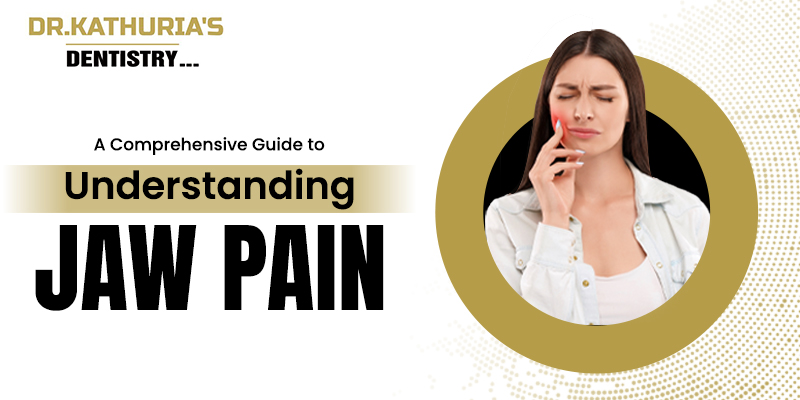Jaw pain is one of the most debilitating conditions that can affect your ability to speak and eat. Experiencing this pain or stiffness can be a sign that you’re suffering from Temporomandibular Joint Disorder or TMD. If you’re experiencing this pain, don’t fret because you’re not alone. There are millions of people who suffer from the same issue.
While this type of dysfunction is not life-threatening, it is still a serious matter that can impact the quality of your life. It is commonly a byproduct of stress and trauma to the temporomandibular joints or muscles, possibly resulting from bruxism. Fortunately, you don’t have to bear this pain any more as there are several ways with which you can bid adieu to this disorder. To understand what causes jaw pain and how to resolve the issues, read the following sections.
What is a temporomandibular joint (TMJ)?
The bi-articular hinge joint, known as the temporomandibular joint (TMJ), joins the skull to the lower jaw. The TMJ enables us to open our jaws widely for eating and speaking, as well as to seal them tightly for chewing foods with tough textures. It is one of the most crucial joints in our body and has a rather complex anatomy.
What causes jaw pain?
There are a number of potential causes of jaw discomfort, in addition to abnormalities or injuries to the jaw joint. Here are a few reasons why jaw pain may occur:
● Dental problems: Dental problems such as gum diseases, tooth gaps, broken teeth, cavities, and abscesses can be the main reason behind jaw pain. Furthermore, dental abscesses, and serious tooth infections, can occasionally send pain radiating to the jaw.
● Cluster Headaches/Migraines: Typically, cluster headaches induce pain behind or around one eye, although the pain can also spread to the jaw. And it is considered one of the most agonizing headache varieties.
● Sinus Conditions: Close to the jaw joint are the sinuses, which are air-filled cavities. An excessive amount of mucus that exerts pressure on the jaw joint and causes pain could originate from the sinuses becoming infected with a virus or bacterium.
● Trigeminal neuralgia: Trigeminal nerve compression is the most frequent cause of trigeminal neuralgia. This disorder affects the upper and lower jaws as well as a vast section of the face.
How is TMJ identified?
TMJ issues can be identified by a qualified orthodontist, dentist, or physician. They will usually accomplish this by:
● observing jaw movement
● keeping an eye out for any jaw clicking
● Identifying sore places on the jaw by applying pressure to it
● Imaging tests (X-rays, CT scans, or MRI images) for diagnosis
Imaging typically happens when a medical professional has a good reason to think there might be an issue. A deeper understanding of what might be causing your TMJ dysfunction will require a close-up look at the joint, jawbone, teeth, and surrounding tissues.
Suggested Read: All You Need to Know About Full Denture Implants
When to see a Doctor?
Although jaw discomfort is not necessarily serious, a patient should visit the doctor if:
● Home remedies for jaw discomfort are ineffective.
● When neck or upper back pain goes into the mouth, the jaw starts to make a popping or clicking sound, which can cause frequent headaches, eye pain, or changes in vision. Mouth pain interferes with a person’s everyday activities.
If you’re suffering from any kind of dental problems such as cavities, toothache or gum issues, visit Dr. Kathuria’s Dentistry. As a leading top dental implant service in Delhi, we have a team of experts who are well-versed with the latest technology and procedure that helps in delivering safe & successful treatment. Also, you can reach us via mail or call; we are just one click away.
 Australia No
Australia No Canada No
Canada No India Toll Free No
India Toll Free No UK No
UK No USA No
USA No












